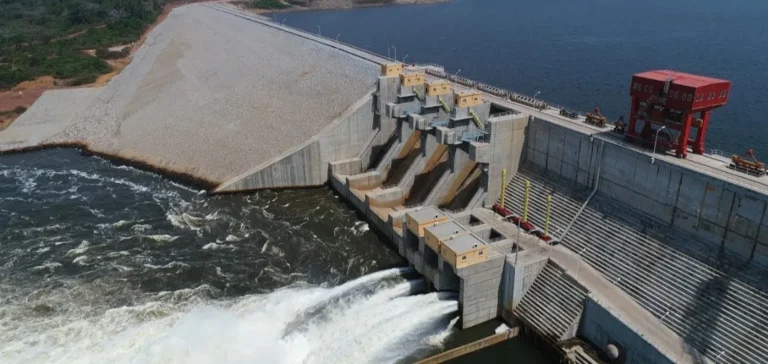The Cameroonian government is looking to raise between XAF80bn and XAF100bn (approximately $141 mn to $177.3 mn) from a group of banks led by Société Générale Cameroun to ensure continued funding of the Nachtigal project. The move is aimed at securing regular payments to Nachtigal Hydro Power Company (NHPC), operator of the 420 MW hydroelectric dam, amid cash flow difficulties faced by public electricity distributor Éneo Cameroun.
Ongoing talks with multiple financial institutions
According to available information, the 24-month banking facility will be arranged by Société Générale Capital Securities Central Africa, with other local banks expected to join soon. The Ministry of Finance has already signed a framework agreement with Société Générale Cameroun, but the full arrangement awaits final approval from other participating lenders. The facility aims to settle unpaid invoices from Éneo to NHPC under the 2018 power purchase agreement and to replenish a standby letter of credit (SBLC) worth €86 mn, backed by a World Bank guarantee.
This new credit line would complement a sovereign guarantee previously granted by the State to Société Générale Paris, which is now more than 85 % drawn down. Less than €10 mn remains available from this coverage. The Finance Ministry is seeking to avoid full utilisation of the guarantee, which remains underpinned by the World Bank.
Éneo in partial default since February
Since February, Éneo has been unable to fully meet its contractual obligations to NHPC. The company was required to provide a bank guarantee, supplemented by a sovereign backstop, but a lack of financing arrangements led NHPC to activate the existing Société Générale guarantee. To date, less than 50 % of monthly invoices have reportedly been paid, though this figure has not been officially confirmed by the company.
Éneo’s difficulties are compounded by delays in building transmission lines between the Nyom substation and Yaoundé, limiting the full evacuation of Nachtigal’s output. Nevertheless, NHPC invoices XAF10bn per month, regardless of electricity uptake, in line with the agreement signed with the State.
Mounting pressure on public finances
An internal report by the Ministry of Water and Energy notes that by the end of 2024, Éneo had accumulated XAF800bn in total debt, including XAF500bn owed to suppliers. The document flags the company as a major fiscal risk, warning it could cause deviations between budget forecasts and actual execution.
To preserve Cameroon’s financial credibility with lenders, authorities aim to finalise the new credit facility swiftly. A source involved in the talks said the government is working to maintain investor confidence despite ongoing strains in the energy sector.






















